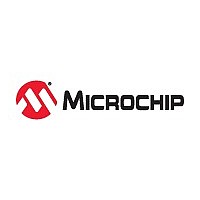PIC24FJ256GB210-I/PT Microchip Technology Inc., PIC24FJ256GB210-I/PT Datasheet - Page 237

PIC24FJ256GB210-I/PT
Manufacturer Part Number
PIC24FJ256GB210-I/PT
Description
100 TQFP 12x12x1mm TRAY, 16-bit, 256KB Flash, 96K RAM, USB
Manufacturer
Microchip Technology Inc.
Datasheet
1.PIC24FJ256GB206-IPT.pdf
(386 pages)
Specifications of PIC24FJ256GB210-I/PT
A/d Inputs
24 Channel, 10-bit
Comparators
3
Cpu Speed
16 MIPS
Eeprom Memory
0 Bytes
Input Output
84
Interface
I2C/SPI/UART/USART/USB
Memory Type
Flash
Number Of Bits
16
Package Type
100-pin TQFP
Programmable Memory
256K Bytes
Ram Size
98K Bytes
Speed
32 MHz
Temperature Range
–40 to 85 °C
Timers
5-16-bit
Voltage, Range
2.2-3.6 V
Lead Free Status / Rohs Status
RoHS Compliant part
Available stocks
Company
Part Number
Manufacturer
Quantity
Price
Company:
Part Number:
PIC24FJ256GB210-I/PT
Manufacturer:
Microchip Technology
Quantity:
10 000
- Current page: 237 of 386
- Download datasheet (4Mb)
FIGURE 18-7:
18.1.2.3
When operating as a USB host, either as an A-device
in an OTG configuration or as an embedded host, V
must
PIC24FJ256GB210 family devices have an internal
V
V
comprised of a simple PWM output to control a Switch
mode power supply, and built-in comparators to
monitor output voltage and limit current.
To enable voltage generation:
1.
2.
3.
4.
5.
6.
7.
2010 Microchip Technology Inc.
BUS
BUS
Note:
Verify that the USB module is powered
(U1PWRC<0> = 1) and that the V
is disabled (U1OTGCON<0> = 0).
Set the PWM period (U1PWMRRS<7:0>) and
duty cycle (U1PWMRRS<15:8>) as required.
Select the required polarity of the output signal
based on the configuration of the external circuit
with the PWMPOL bit (U1PWMCON<9>).
Select the desired target voltage using the
VBUSCHG bit (U1OTGCON<1>).
Enable the PWM counter by setting the CNTEN
bit to ‘1’ (U1PWMCON<8>).
Enable the PWM module by setting the PWMEN
bit (U1PWMCON<15>) to ‘1’.
Enable
(U1OTGCON<3> = 1).
from the available voltages on the board. This is
boost assist to help generate the required 5V
be
This
process for V
control. Please refer to the “PIC24F
Family Reference Manual” for additional
examples.
supplied
V
External Devices
BUS
the
Connector
Micro A/B
section
Voltage Generation with
V
GND
BUS
D+
V
OTG INTERFACE EXAMPLE
D-
ID
BUS
to
BUS
describes
4.7 µF
the
voltage generation and
generation
attached
BUS
1 µF
the
40 k
discharge
general
circuit
PIC24FJ256GB210 FAMILY
device.
GND
C+
C-
V
OUT
BUS
MCP1253
SELECT
PGOOD
SHND
V
IN
18.1.3
Some applications may require the USB interface to be
isolated
PIC24FJ256GB210 family devices include a complete
interface to communicate with and control an external
USB transceiver, including the control of data line
pull-ups and pull-downs. The V
control circuit can also be configured for different V
generation topologies.
Refer to the “PIC24F Family Reference Manual”,
Section 27. “USB On-The-Go (OTG)” for information
on using the external interface.
18.1.4
The USB transceiver consumes a variable amount of
current depending on the characteristic impedance of
the USB cable, the length of the cable, the V
voltage and the actual data patterns moving across the
USB cable. Longer cables have larger capacitances
and consume more total energy when switching output
states. The total transceiver current consumption will
be
estimate how much current actually may be required in
full-speed applications.
Refer to the “PIC24F Family Reference Manual”,
Section 27. “USB On-The-Go (OTG)” for a complete
discussion on transceiver power consumption.
application-specific.
V
DD
10 µF
from
USING AN EXTERNAL INTERFACE
CALCULATING TRANSCEIVER
POWER REQUIREMENTS
I/O
I/O
V
D+
D-
ID
V
PIC
BUS
SS
the
®
MCU
rest
Equation 18-1
BUS
of
DS39975A-page 237
voltage generation
the
USB
can
system.
supply
help
BUS
Related parts for PIC24FJ256GB210-I/PT
Image
Part Number
Description
Manufacturer
Datasheet
Request
R

Part Number:
Description:
Manufacturer:
Microchip Technology Inc.
Datasheet:

Part Number:
Description:
Manufacturer:
Microchip Technology Inc.
Datasheet:

Part Number:
Description:
Manufacturer:
Microchip Technology Inc.
Datasheet:

Part Number:
Description:
Manufacturer:
Microchip Technology Inc.
Datasheet:

Part Number:
Description:
Manufacturer:
Microchip Technology Inc.
Datasheet:

Part Number:
Description:
Manufacturer:
Microchip Technology Inc.
Datasheet:

Part Number:
Description:
Manufacturer:
Microchip Technology Inc.
Datasheet:

Part Number:
Description:
Manufacturer:
Microchip Technology Inc.
Datasheet:











